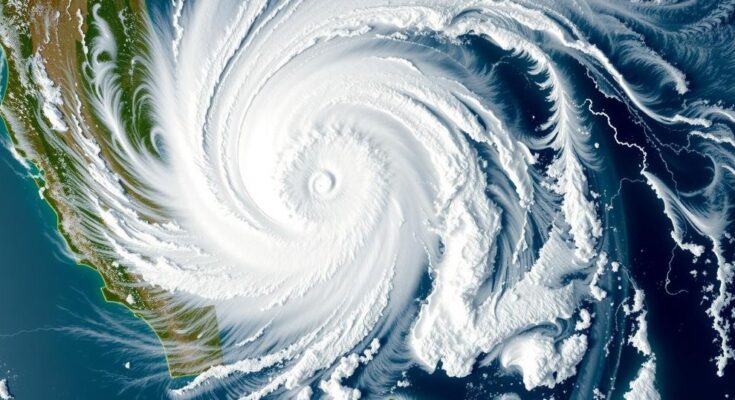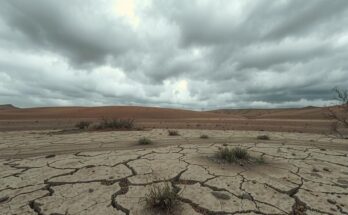Cyclone Chido devastated Mayotte on December 14, 2024, with winds reaching 155 mph, causing unprecedented destruction. The storm left hundreds dead, with significant damage to infrastructure, heightening concerns over humanitarian aid in France’s poorest region. After Mayotte, Chido affected Mozambique, resulting in additional fatalities and property destruction.
On December 14, 2024, Cyclone Chido unleashed its fury on the islands of Mayotte, leading to catastrophic destruction and numerous fatalities, as evidenced by powerful satellite imagery. This cyclone, which reached winds of 155 miles per hour, was characterized as the strongest storm to strike Mayotte in over 90 years. The storm’s devastating impact has made it a significant disaster for this impoverished French overseas region in the Indian Ocean.
Originating as a tropical disturbance on December 5, Chido rapidly intensified, making landfall after impacting the Mauritian islands of Agaléga. The cyclone initially passed north of Madagascar, but upon hitting Mayotte, it left behind a scene of unprecedented devastation. As of Tuesday morning, 21 lives were reported lost, but the actual toll is feared to be much higher.
French officials have indicated the scale of this disaster is monumental. Bruno Retailleau, France’s Minister of the Interior, described Mayotte as being devastated, emphasizing the mobilization of the State to assist victims. President Emmanuel Macron has also voiced his commitment to providing emergency support, revealing plans to travel to Mayotte amid these trying circumstances and asserting that national mourning will be declared.
The cyclone’s effects have been severe, destroying neighborhoods and critical infrastructure including the airport and hospitals. The devastation is compounded by Mayotte’s existing economic challenges, as it is the poorest department of France and holds the title of the most impoverished territory in the European Union.
Chido’s destruction did not stop at Mayotte; it subsequently made landfall in Mozambique on December 15, affecting 174,000 people, with at least 34 confirmed fatalities and significant property damage. Although Cyclone Chido is projected to weaken as it moves inland into Zimbabwe, its impact will be felt for some time to come.
Cyclones are a significant meteorological phenomenon, particularly in tropical regions, where conditions such as warm sea surface temperatures and low wind shear can facilitate the formation of severe storms. The scale of destruction caused by cyclones like Chido is not merely limited to wind damage but extends to flooding, loss of life, and severe economic repercussions, particularly in vulnerable regions like Mayotte, which struggles with limited resources and infrastructure. Previous cyclones have illustrated the need for effective emergency preparedness and response strategies in facing such natural disasters.
In summary, Cyclone Chido has inflicted unprecedented damage on the islands of Mayotte, raising concerns over the humanitarian crisis that will follow. The cyclone’s destructive path is a stark reminder of nature’s power and the vulnerability of heavily impacted regions, particularly those with limited resources for disaster recovery. Continued support from the French government and the international community will be critical in aiding recovery and rebuilding efforts in the aftermath of this catastrophic event.
Original Source: www.newsweek.com




